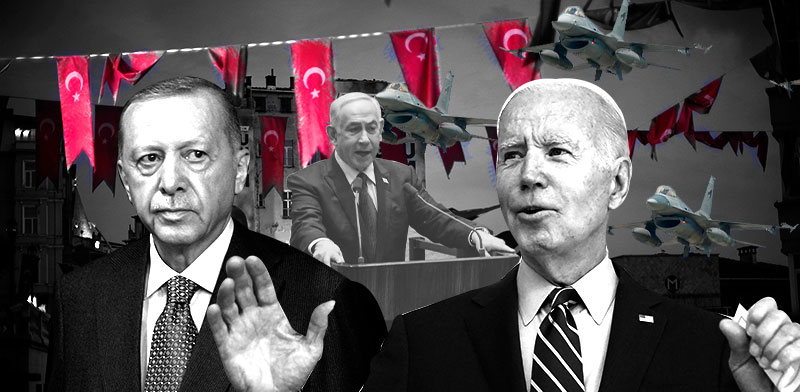For many years, the phrase “The road to Washington goes through Jerusalem” has been commonly used by people around the world. Turkey was the first Muslim country to recognize Israel in 1949, aiming to strengthen ties with Washington and eventually join the NATO alliance in 1952. The move was driven by a fear of Soviet expansion after World War II rather than support for Zionism.
However, today, in the midst of strained relationships between Prime Minister Binyamin Netanyahu and US President Joe Biden, traditional alliances are shifting. Biden and Turkish President Recep Tayyip Erdogan have found common ground based on mutual opportunism. Erdogan’s approval was needed for Sweden to join NATO and for Turkey to upgrade its air force, solidifying their relationship.
Reports suggest that Erdogan may visit the White House on May 9, marking the first visit by a Turkish president to Washington since Biden took office. This unexpected closeness between the two leaders is driven by an increasing demand for artillery shells, particularly the 155mm diameter shells used by NATO countries like Israel.
As conflicts in Ukraine and other parts of the world escalate, demand for these shells has skyrocketed, leading to shortages in supply. The US and EU are working to increase production rates to meet this demand. Turkey is expected to play a significant role in supplying these shells to both countries, potentially becoming one of their top suppliers.
Erdogan’s strategic maneuvers during global conflicts demonstrate his complex diplomatic approach. By selling drones to Ukraine while receiving S-400 batteries from Russia, he is positioning himself as a key player on the world stage who can provide both military hardware and defense systems at once. This strategy allows him to strengthen his country’s position as a major supplier of weapons systems while also maintaining good relations with Russia despite ongoing tensions between Moscow and Ankara over several issues such as Syria and Cyprus.
The shifting alliances and geopolitical dynamics highlight how leaders like Erdogan are navigating complex relationships with each other and with major global powers like the US and Russia in order to advance their interests on multiple fronts simultaneously.
Overall, Erdogan’s actions underscore how global politics are interconnected and that leaders must be willing to make strategic decisions that benefit themselves while also considering broader international implications if they want
